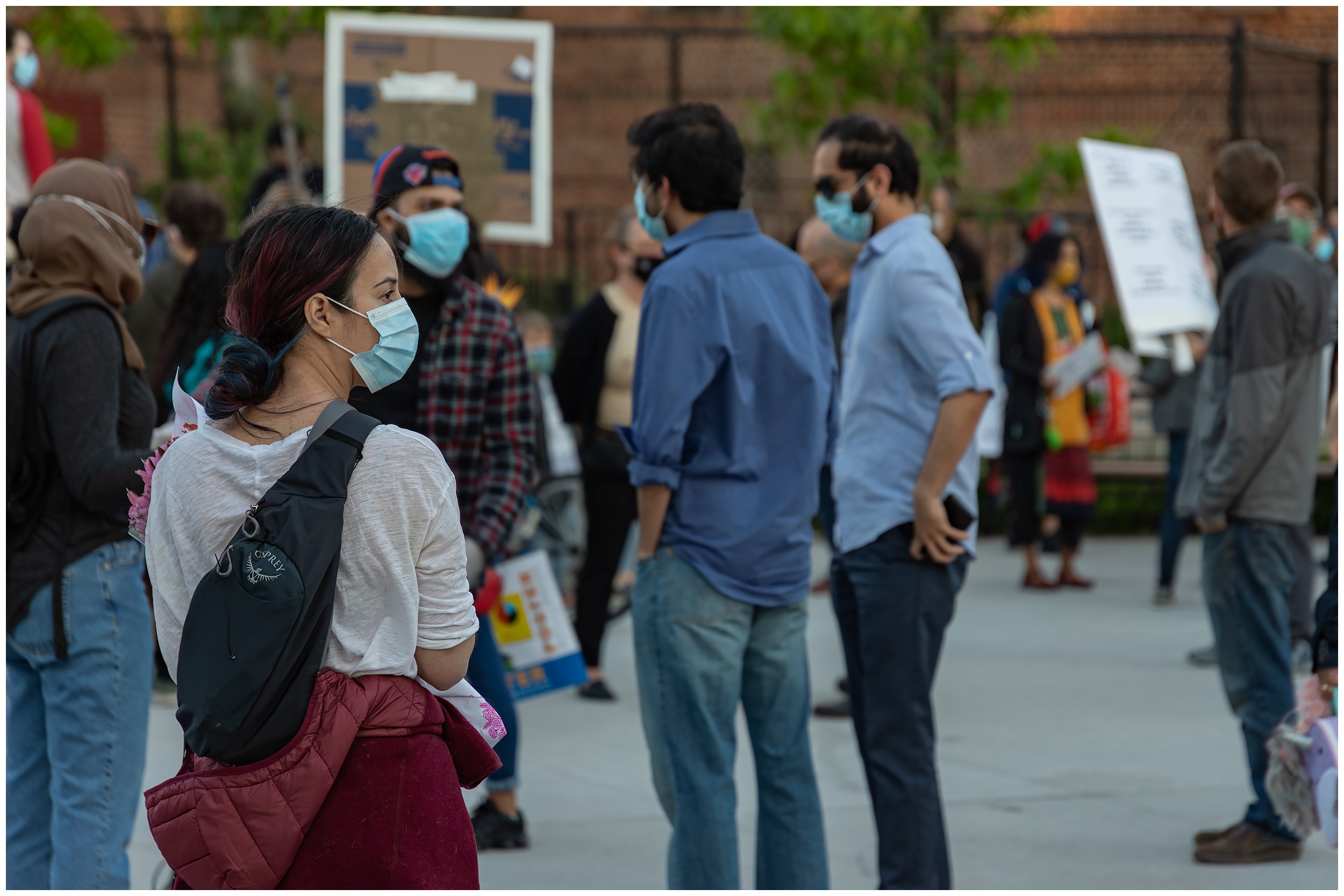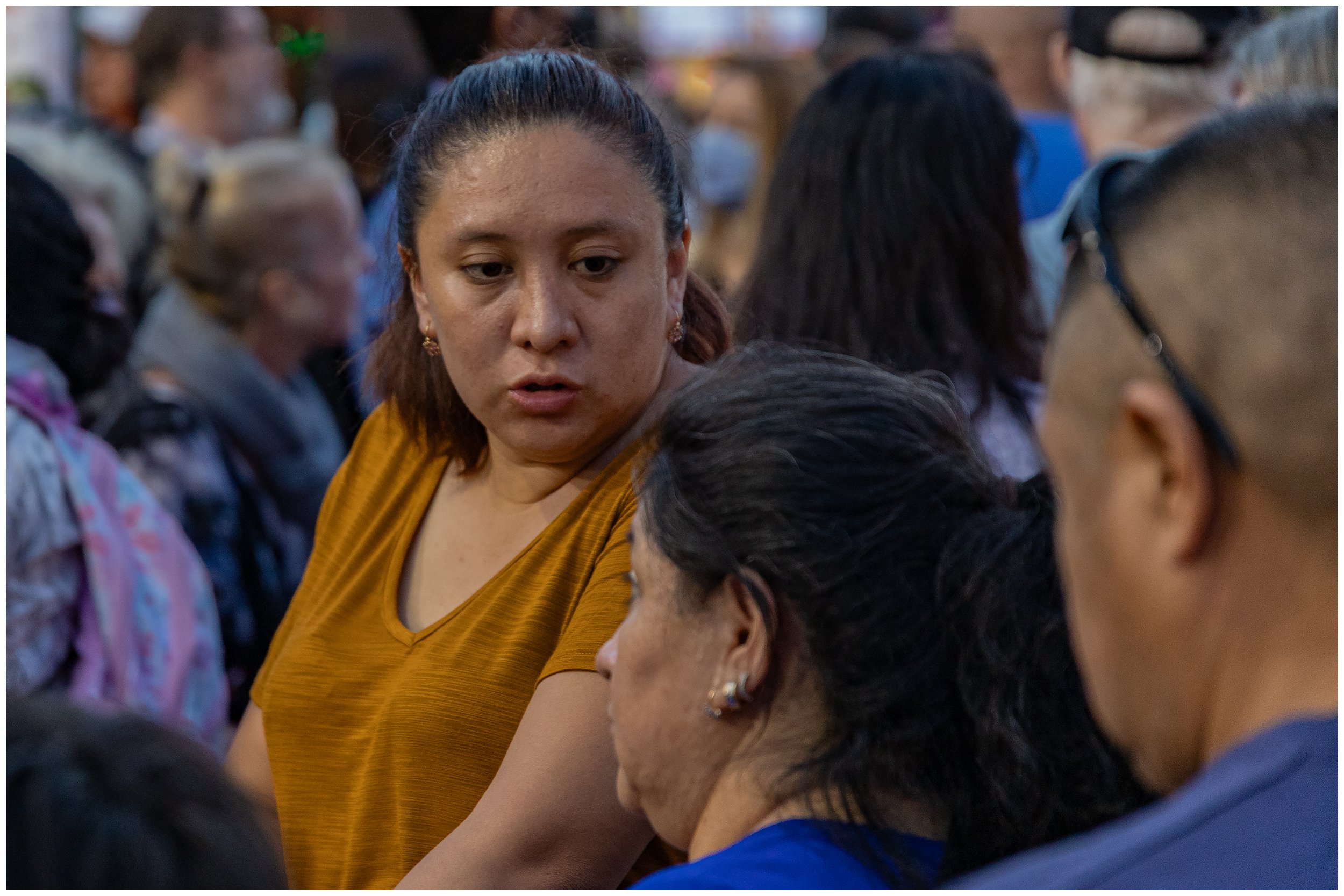A Decisive Moment
First published on OpenStax.org—Jul 22, 2020
Renowned French photographer Henri Cartier-Bresson —one of the founders of photojournalism— is said to have coined the expression “the decisive moment” in reference to the convergence of spirit, mind and subject when taking a photograph. I here borrow the concept to reflect on the current confluence of frightening dangers to our individual and communal health, and the recently heightened struggle for social justice for all, mobilized by the Black Lives Matter movement.
Image by René Sing-Brooks
As a photography student, and as a lifelong learner, I am invested in the broadening of our learning spaces —physical and non-physical, formal and non-formal— as a way of challenging the dominance of market-driven values that significantly shape our education system and contribute to the insufficiencies between academics and the social justice urgencies of our times. The COVID 19 pandemic and the rightful demands of the Black Lives Matter movement have delivered a “decisive moment” that exposes some of the mechanisms that perpetuate inequity and delay the advent of a justice-driven society.
How will our education system respond to this in-your-face moment? Hopefully, we will embrace open educational resources and the principles of open pedagogy, if we are to develop a truly open society. This isn’t only – or even mainly – a matter of tuition and textbook cost. It is a question of full inclusion of our multiple stories into freshly conceived learning spaces that may unleash their interpretative powers. It’s about breaking the primacy of vertically authorized learning through traditional, textbook-confined knowledge to involve students as sources instead of vessels to be filled with careerist content. This is a decisive moment for communal learning, to be facilitated by affordable and accessible learning resources that affirm human solidarity and invoke a realizable ecological society.
Image by René Sing-Brooks
I’ve just recently completed two photography classes and one film appreciation class at LaGuardia Community College, classes that were moved online due to the pandemic. Students and teachers were called to stay the course with a murky horizon ahead. On one hand, we had technical issues to deal with and, on the other, legacy pedagogical untended concerns like student participation in the design of their learning experience, all wrapped up in the challenge to face a situation with unpredictable stakes. The call demanded we clearly see each other – students and teachers – as partners; as co-creators of decisive learning moments. In this context, having access to readily available open education resources —in the form of videos and PDFs curated by our teachers and open to student valuation— allowed some measure of success in a critical situation.
This unfolding crisis urges us to no longer ignore the hurdles teachers and students face in achieving our educational vision. We urgently need to resolve the issue of textbooks’ high cost and often poor quality, along with addressing students’ unequal access to computers and the internet and the constraints so many face due to poverty and distressed home lives.
It is still early to declare the lessons of this decisive moment. The fire still rages, and the horizon is still murky. One thing is clearer: we need to break down the barriers that limit students’ and teachers’ potential for collaboration. One promising field is the development of open education resources that expand and deepen the incorporation of long-denied demands for social justice coming from so many in and out of the United States. In this regard, students’ experiences —personal and communal— are the connecting tissue of this learning moment. If education isn’t for the edification of a more just society, then what’s the point?
go to Love in the Year of the Plague || go to The Answer is in the Room
go to Resilient Learning || go to Beyond the Twilight of Revolution

